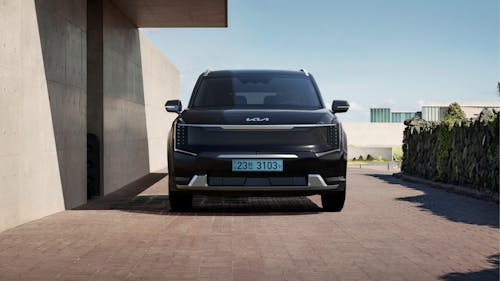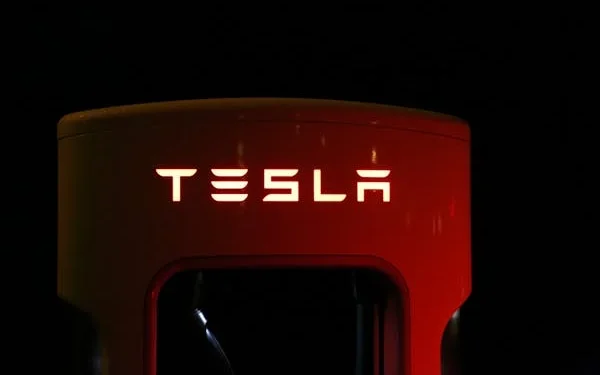The decision between electric and gas-powered cars has become one of the most significant choices for today’s car buyers. As the world continues to shift toward sustainability and more eco-conscious living, understanding the advantages and disadvantages of both options can help you make the best decision for your lifestyle, budget, and long-term goals. Each type of vehicle offers distinct benefits, and the right choice depends on a variety of factors.
1. Environmental Impact
One of the primary reasons many people are considering electric cars over their gas-powered counterparts is their environmental impact. Electric vehicles (EVs) have zero tailpipe emissions, which significantly reduces their overall carbon footprint compared to traditional gas cars. This makes them a popular option for environmentally-conscious consumers who are looking to reduce their contribution to air pollution and greenhouse gases.
On the other hand, while gas cars emit carbon dioxide and other harmful gases during operation, the emissions associated with EVs are mainly linked to electricity production. Depending on how the electricity is generated in your area, EVs can still have an environmental impact. However, the shift toward renewable energy sources means that this impact is steadily decreasing, and many people charge their electric cars using clean energy.
2. Fuel and Charging Costs

When it comes to fuel costs, electric cars tend to have a significant advantage. The price of electricity is generally lower than gasoline, meaning that EVs are often cheaper to “refuel” on a per-mile basis. Additionally, many EV owners benefit from charging at home, where they can take advantage of lower electricity rates during off-peak hours.
Gas-powered cars, however, require you to rely on gasoline, which can fluctuate in price due to market conditions and global events. Depending on where you live, gas prices can vary significantly, making it harder to predict your long-term fuel costs. However, gas-powered cars can refuel more quickly than electric vehicles can charge, which is a point to consider if convenience is a priority for you.
3. Maintenance and Longevity
Electric vehicles have fewer moving parts than traditional gas-powered vehicles, which translates into less wear and tear and fewer parts that need regular maintenance. For example, electric cars don’t require oil changes, and the brake systems often last longer due to regenerative braking. This can lead to lower long-term maintenance costs and fewer visits to the mechanic.
Gas cars, on the other hand, require regular oil changes, maintenance of the exhaust system, and more frequent repairs to components like the transmission and fuel system. Over time, these costs can add up. However, gas-powered cars have a long history of reliability, and many consumers are familiar with the costs associated with maintaining them.
4. Driving Range and Convenience
One of the most significant concerns for many people when considering an electric car is the driving range. While electric vehicle ranges have improved significantly in recent years, most EVs still fall short of the distance a traditional gas car can cover on a full tank of fuel. For some, this may not be a deal-breaker, especially if you live in an area with plenty of charging stations. However, long road trips can become more complicated if you don’t have access to a fast charger.
Gas cars, on the other hand, offer a more convenient refueling experience, with gas stations widely available and quick refueling times. If you need to travel long distances frequently, a gas-powered vehicle may provide you with more peace of mind. However, as electric vehicle charging infrastructure continues to expand, this gap in convenience is narrowing.
5. Vehicle Variety and Performance
Electric vehicles are becoming increasingly popular, and automakers are expanding their offerings to include more options at various price points. From compact cars to SUVs and luxury sedans, there is an electric vehicle for nearly every type of driver. Additionally, electric vehicles tend to offer excellent acceleration and smooth driving experiences, thanks to their instant torque and quiet operation.
Gas cars, by contrast, have been around for much longer and offer a wider variety of vehicle types, including many performance models, trucks, and larger vehicles. Gas-powered vehicles tend to have more options in terms of size and design, and some people prefer the driving experience of a gas-powered engine, especially in high-performance or heavy-duty vehicles.

6. Initial Purchase Price and Incentives
While electric cars have lower operating costs, the upfront purchase price tends to be higher than that of a gas car. This is mainly due to the cost of the battery, which is a significant part of the price of an electric vehicle. However, various government incentives, such as tax credits and rebates, can help offset this initial cost, making EVs more affordable for a broader range of people.
Gas-powered cars generally have a lower starting price and are more accessible for buyers who may be on a tighter budget. However, as gas prices rise and maintenance costs accumulate, the long-term financial benefits of owning an electric car can outweigh the initial price difference.
7. The Future of Transportation
As the global auto industry continues to pivot toward sustainability, electric cars are expected to play a significant role in shaping the future of transportation. Many countries are setting ambitious targets for phasing out the sale of new gas-powered vehicles within the next few decades. Additionally, automakers are investing heavily in EV technology, which is likely to make electric vehicles more affordable, accessible, and efficient in the coming years.
The future of gas cars, on the other hand, is less certain. While they will likely continue to be available for the foreseeable future, the shift toward electric and hybrid vehicles is gaining momentum. This means that over time, the availability of gas cars may decrease, and the infrastructure surrounding EVs will continue to improve, further supporting their growth.
8. Resale Value
When it comes to resale value, gas-powered cars typically hold their value better than electric vehicles. This is largely due to the fact that electric cars are still relatively new to the market, and many buyers are uncertain about the long-term durability and battery life of EVs. However, as electric cars become more mainstream and their technology continues to improve, it’s likely that their resale value will increase as well.
Gas-powered cars have a more established market, meaning that buyers are often more comfortable with the resale value of these vehicles. In the short term, gas cars may hold an advantage in terms of depreciation rates.
Making the choice between an electric car and a gas car depends on your priorities and personal preferences. Electric vehicles offer significant long-term savings, lower emissions, and a smooth driving experience, making them ideal for eco-conscious drivers who are willing to invest in the future of transportation. Gas cars, on the other hand, offer a more familiar and convenient experience with a lower initial cost, making them suitable for drivers who prioritize range, quick refueling, and familiarity. Both options have their strengths, and the best choice for you depends on your driving habits, budget, and values.














